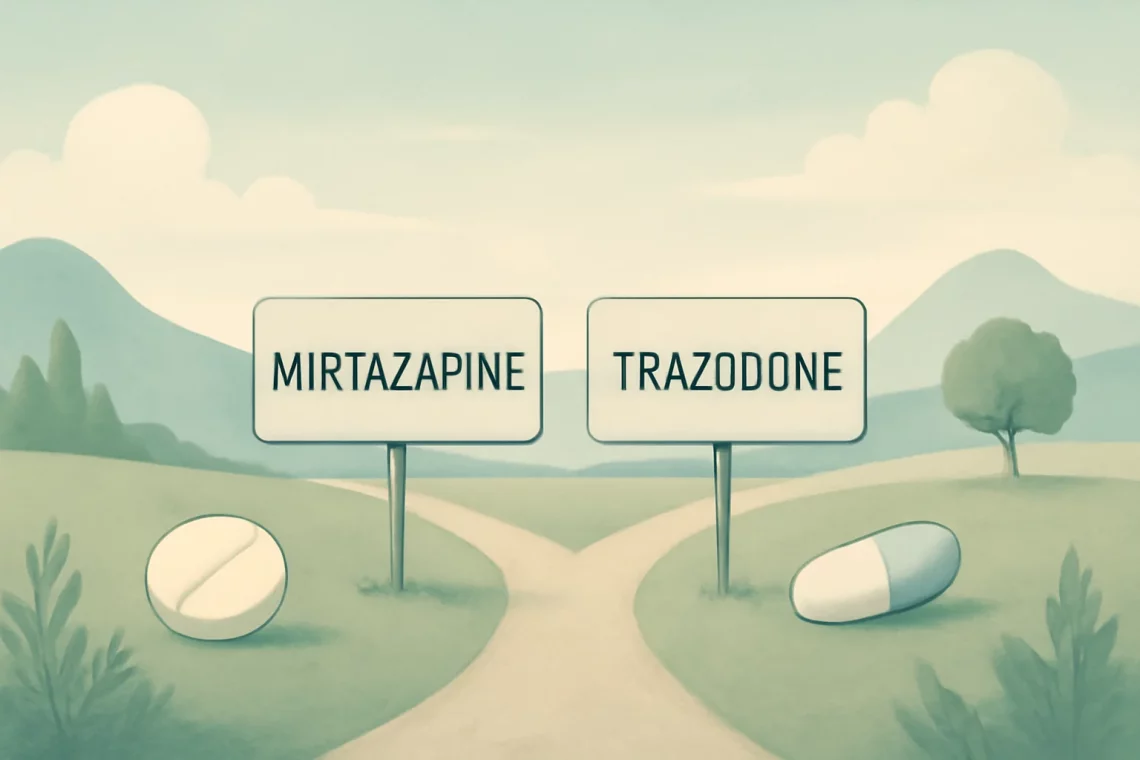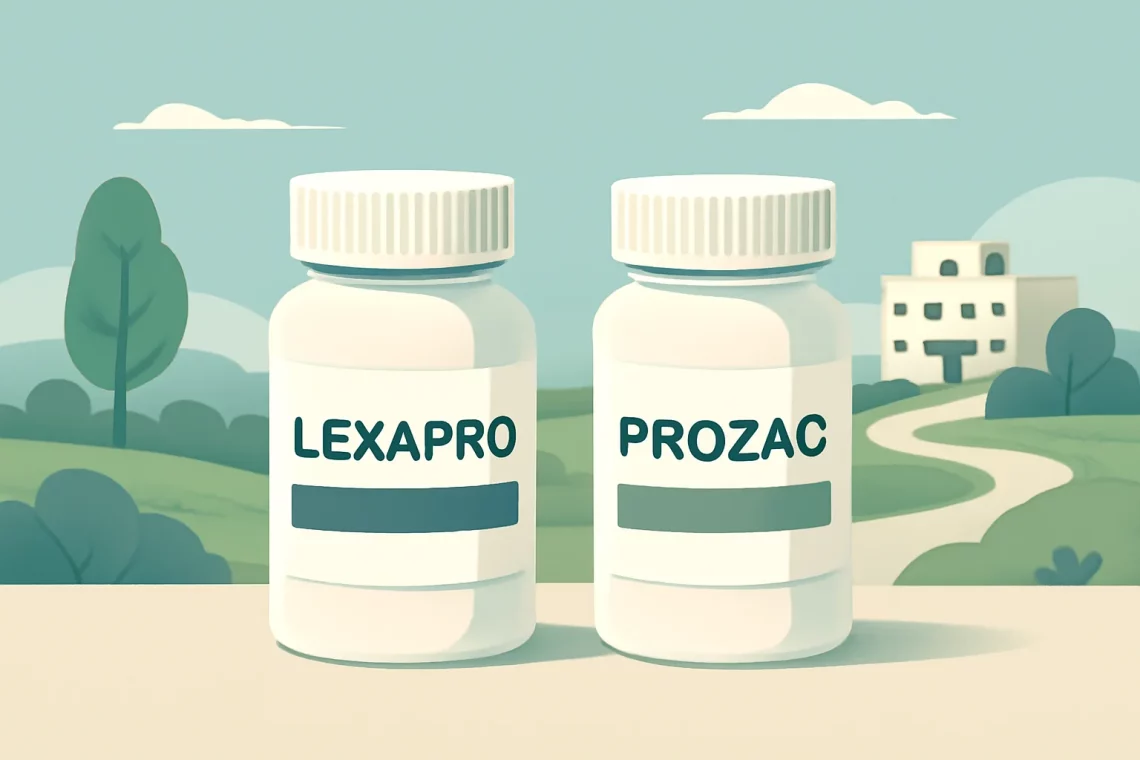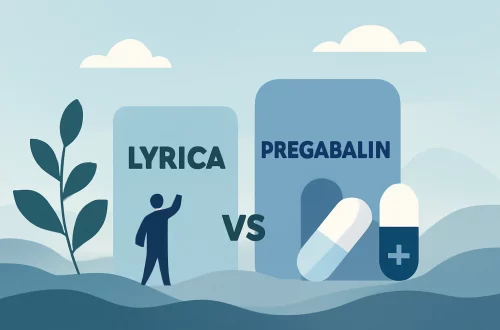-
Mirtazapine vs Trazodone: Which Antidepressant is Right for You?
Mirtazapine and trazodone are two medications commonly prescribed for mental health conditions, particularly for anxiety and depression. In recent years, there’s been growing awareness of the mental health crisis affecting individuals globally, leading to increased discussions about the most effective treatment options. Both mirtazapine and trazodone function as antidepressants, but they have distinct mechanisms of action and side effect profiles, which can influence a physician’s choice based on individual patient needs. As the stigma around mental health continues to diminish, more people are seeking help and exploring various treatment avenues. This shift in attitude has prompted patients and healthcare providers alike to delve deeper into the pros and cons of…
-
Bupropion vs Varenicline: Which is Better for Smoking Cessation?
Bupropion and varenicline are two medications often discussed in the context of smoking cessation and depression treatment. Both drugs have garnered attention for their unique mechanisms of action and their effectiveness in helping individuals quit smoking or manage their mental health conditions. As smoking remains one of the leading causes of preventable diseases and premature deaths worldwide, the search for effective cessation methods is crucial. Understanding the differences between bupropion and varenicline can empower individuals to make informed decisions about their treatment options. While both medications are used to aid in smoking cessation, they work in distinct ways and have different side effects and contraindications. This article delves into the…
-
Duloxetine vs Venlafaxine: Which Antidepressant is Right for You?
Duloxetine and venlafaxine are two medications commonly used to treat various mental health conditions, particularly depression and anxiety disorders. Both belong to the class of drugs known as serotonin-norepinephrine reuptake inhibitors (SNRIs), which work by increasing the levels of certain neurotransmitters in the brain. These medications are often prescribed when patients do not respond to selective serotonin reuptake inhibitors (SSRIs) or when their symptoms require a broader approach to treatment. The choice between duloxetine and venlafaxine can be challenging for both healthcare providers and patients. Factors such as the specific symptoms being treated, the side effect profiles of the medications, and individual patient responses can all influence this decision. Additionally,…
-
Lurasidone vs Quetiapine: Which Antipsychotic is Right for You?
Lurasidone and Quetiapine are two atypical antipsychotic medications that are commonly prescribed for various mental health conditions. Both medications have gained recognition for their efficacy in treating disorders such as schizophrenia and bipolar disorder. However, they differ in their pharmacological profiles, side effects, and patient experiences. As mental health awareness continues to grow, understanding these medications becomes crucial for individuals seeking effective treatments. The choice between Lurasidone and Quetiapine may depend on various factors including the specific diagnosis, patient history, and individual response to treatment. In recent years, the dialogue surrounding mental health has evolved, encouraging open conversations about the importance of medication in managing symptoms. Patients and healthcare providers…
-
Clonazepam vs Ativan: Understanding Their Differences and Uses
Clonazepam and Ativan are two medications that fall under the category of benzodiazepines, which are widely prescribed for their sedative, anti-anxiety, and muscle-relaxing properties. These medications have gained prominence for their effectiveness in treating various mental health conditions, including anxiety disorders, panic attacks, and seizures. The rise in the prescription of benzodiazepines has led to a growing interest in understanding the differences and similarities between Clonazepam and Ativan, especially among those seeking relief from anxiety and related disorders. As the demand for effective treatment options increases, patients and healthcare providers alike are keen to compare these two medications. While both Clonazepam and Ativan can provide significant benefits, they also come…
-
Lexapro vs Prozac: A Comprehensive Comparison of Two Antidepressants
Depression and anxiety are two of the most common mental health disorders affecting millions of individuals worldwide. As awareness of mental health issues has grown, so too has the range of treatment options available. Among these options, selective serotonin reuptake inhibitors (SSRIs) have gained prominence for their efficacy in treating depression and anxiety-related disorders. Lexapro and Prozac are two of the most well-known SSRIs prescribed by healthcare professionals. While both medications aim to balance serotonin levels in the brain, their formulations and specific uses can vary significantly. Understanding the differences between Lexapro and Prozac is crucial for patients seeking effective treatment for mental health issues. Factors such as side effects,…
-
Citalopram vs Paxil: Understanding the Key Differences and Uses
Citalopram and Paxil are two medications frequently discussed in the context of mental health treatment, particularly for conditions such as depression and anxiety disorders. Both belong to a class of drugs known as selective serotonin reuptake inhibitors (SSRIs), which are designed to increase serotonin levels in the brain. This enhancement of serotonin activity is thought to improve mood and emotional balance. The choice between citalopram and Paxil often raises questions among patients and healthcare professionals alike, as each drug has its own unique profile of benefits and potential side effects. While both medications aim to alleviate symptoms of mental health disorders, they can differ significantly in their effectiveness, tolerability, and…
-
Vraylar vs Latuda: A Comprehensive Comparison of Two Antipsychotics
Vraylar and Latuda are two medications that are commonly prescribed for the treatment of psychiatric disorders, particularly schizophrenia and bipolar disorder. Both drugs belong to a class of medications known as atypical antipsychotics, which are designed to manage symptoms such as hallucinations, delusions, and mood swings. While they share similar mechanisms of action, they also have unique properties that differentiate them in terms of efficacy, side effects, and patient experience. In recent years, the understanding and treatment of mental health conditions have evolved, leading to the development of newer medications that aim to improve patients’ quality of life. Choosing the right medication is crucial for effective treatment and can significantly…
-
Diazepam vs Clonazepam: Which Medication Is Right for You?
In the realm of mental health and pharmacology, few medications have garnered as much attention as benzodiazepines, particularly Diazepam and Clonazepam. These drugs are widely used for their anxiolytic, anticonvulsant, and muscle relaxant properties. Both have carved out significant roles in treating various disorders, including anxiety, panic attacks, and certain types of seizures. However, their differences in mechanism, efficacy, and side effects can often lead to confusion for patients and healthcare providers alike. Understanding these differences is crucial for making informed decisions about treatment options. As the conversation around mental health continues to evolve, the importance of choosing the right medication has become more pronounced. Patients often find themselves navigating…
-
Vraylar vs Seroquel: A Comprehensive Comparison of Two Medications
Vraylar and Seroquel are two medications commonly prescribed for the treatment of mental health conditions, particularly bipolar disorder and schizophrenia. Both drugs play a significant role in managing symptoms, but they differ in their mechanisms of action, side effects, and overall effectiveness. Understanding these differences can be crucial for patients and healthcare providers when determining the most appropriate treatment options. While Vraylar, an atypical antipsychotic, works primarily by modulating dopamine and serotonin receptors in the brain, Seroquel, another atypical antipsychotic, has a broader range of receptor activity. This can lead to varying outcomes and experiences for patients taking these medications. It’s essential to explore the characteristics of each drug, their…







































